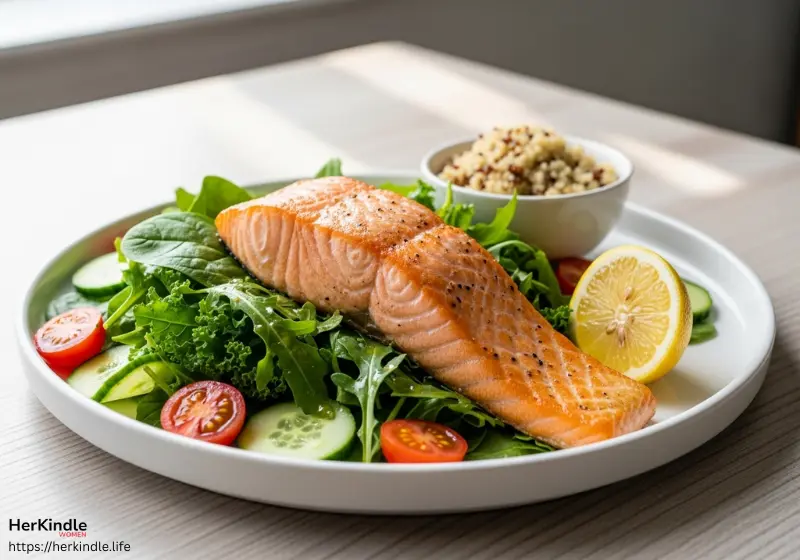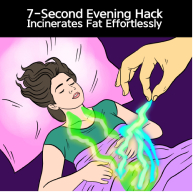Stress is a universal human experience, yet for many women aged 35 and older, it’s a daily battle intensified by family responsibilities, work demands, aging concerns, and unexpected life transitions. In the hustle of modern life, learning how to effectively manage stress is no longer optional — it’s essential.
This comprehensive guide explores evidence-based stress relief techniques—from mindfulness-based stress reduction (MBSR) to cognitive behavioral therapy (CBT), from exercise and relaxation techniques to nutrition and community support.
If you’re looking for a practical, compassionate, and research-backed roadmap to a calmer, more centered life, this article is for you.
Understanding the Physiology of Stress: What’s Happening in Your Body?
The Fight-or-Flight Response
When stress hits, your body reacts instinctively. The amygdala, the brain’s fear center, sends a signal to the hypothalamus, triggering a fight-or-flight response. Stress hormones like adrenaline and cortisol flood your bloodstream. You breathe faster, your heart races, your muscles tighten — preparing you for survival.
But what happens when this alarm never turns off?
Chronic Stress and Its Toll on Health
Long-term activation of the stress response has devastating effects:
- Immune suppression: You become more susceptible to infections and illnesses.
- Cardiovascular risks: Elevated blood pressure, cholesterol, and increased risk of stroke or heart attack.
- Digestive issues: Stress can disrupt gut function, increase acid reflux, or cause constipation/diarrhea.
- Mental health disorders: Chronic stress is linked to anxiety, depression, and cognitive decline.
Recognizing these patterns helps you validate your symptoms and motivates you to take proactive steps toward relief.
1. Mindfulness-Based Stress Reduction (MBSR): Science Meets Stillness
What is MBSR?
Developed by Jon Kabat-Zinn at the University of Massachusetts Medical School, Mindfulness-Based Stress Reduction is an 8-week structured program integrating:
- Mindfulness meditation
- Gentle yoga
- Body scanning
- Group discussion and education
How MBSR Works
By increasing awareness of the present moment without judgment, MBSR helps retrain the brain’s response to stress. Studies show it enhances emotion regulation and lowers cortisol levels.
Proven Benefits
- Reduces anxiety, depression, and insomnia
- Improves emotional resilience
- Increases self-compassion and empathy
- Enhances immune function
Practical MBSR Exercises
- Body scan: Start from your toes and move upward, observing sensations without trying to change them.
- Breath awareness: Focus on the natural rhythm of your breathing for 5–10 minutes daily.
- Mindful movement: Gentle yoga or tai chi performed slowly with intention.
✅ Tip: Practice morning mindfulness to start your day grounded and centered.
2. Cognitive Behavioral Therapy (CBT) for Stress: Rewiring Thought Patterns
What is CBT?
Cognitive Behavioral Therapy helps individuals identify, challenge, and reframe negative thoughts that trigger emotional distress. It’s widely used to treat anxiety, depression, and stress-related disorders.
How It Works
CBT assumes that our thoughts shape our emotions and behaviors. By modifying distorted thinking patterns (e.g., “I’m failing as a mother” or “I can’t handle this job”), you change how you feel and act.
Common Techniques in CBT
- Thought journaling: Track and analyze daily stress triggers.
- Cognitive restructuring: Replace irrational thoughts with balanced alternatives.
- Behavioral activation: Engage in positive, goal-directed activities.
- Grief-focused CBT: Helps process and reframe loss-related thought patterns.
Why It Works for Women 35+
CBT is particularly effective during midlife transitions (e.g., perimenopause, career changes, parenting teens). It’s structured, short-term, goal-oriented, and empowering.
💡 Many therapists now offer online CBT programs, making it more accessible than ever.
3. Relaxation Techniques: Reclaiming Peace Moment by Moment
Everyday Tools for Instant Calm
When stress peaks, you need in-the-moment tools to return to center. Here are proven relaxation techniques:
- Progressive Muscle Relaxation: Tense and release each muscle group.
- Guided imagery: Visualize peaceful scenes like walking along a forest trail or lying on a warm beach.
- Box breathing: Inhale 4s – Hold 4s – Exhale 4s – Hold 4s.
- Gratitude journaling: Write three things you’re grateful for before bed.
Creating a Relaxation Ritual
Design a nightly wind-down routine:
- Turn off screens
- Sip calming tea (e.g., chamomile)
- Read or journal
- Use essential oils like lavender or bergamot
🔄 Consistency is key. The brain learns to associate this ritual with safety and relaxation.
4. Exercise for Stress Management: Movement as Medicine
Why Exercise Works
Exercise stimulates the release of endorphins — your body’s natural mood boosters. It also:
- Regulates cortisol and adrenaline
- Improves sleep quality
- Enhances self-esteem and confidence
- Supports brain health and memory
Best Types of Exercise for Stress Relief
| Type | Example | Benefit |
|---|---|---|
| Aerobic | Brisk walking, swimming, cycling | Burns off stress hormones |
| Mind-body | Yoga, tai chi | Combines movement with mindfulness |
| Strength training | Resistance bands, bodyweight | Builds resilience and confidence |
✅ Aim for 150 minutes/week of moderate-intensity activity. Even 10-minute walks reduce stress significantly.
Exercise Tips for Busy Women
- Pair with podcasts or music
- Involve a friend or child
- Use short home workouts (YouTube, apps)
- Walk after meals to aid digestion and unwind
5. Nutrition: Eat to Beat Stress
The Gut-Brain Connection

Your gut houses 90% of the body’s serotonin receptors. An unhealthy gut can affect your mood, energy, and stress resilience.
Key Stress-Relieving Nutrients
- Magnesium: Found in avocados, spinach, almonds
- Omega-3s: Salmon, chia seeds, flaxseeds
- Vitamin B12: Eggs, dairy, lean meats
- Probiotics: Yogurt, kefir, fermented vegetables
Sample “De-Stress Plate”
- Grilled salmon with quinoa
- Roasted broccoli + spinach salad
- Berries with yogurt for dessert
🍵 Limit caffeine and alcohol which elevate cortisol and disrupt sleep.
6. The Power of Social Support and Community
Connection is Medicine
Social ties provide a buffer against life’s stressors. Meaningful relationships boost oxytocin, the bonding hormone that soothes your nervous system.
Ways to Strengthen Your Support Network
- Join local or virtual support groups
- Call a friend regularly
- Attend a wellness or meditation retreat
- Volunteer with a cause you care about
The Role of Professional Help
Don’t hesitate to reach out to:
- Therapists (CBT or MBSR trained)
- Coaches
- Faith leaders
- Physicians or integrative medicine specialists
💌 Connection heals. You’re not meant to navigate stress alone.
Frequently Asked Questions (FAQ)
Some of the most effective include:
– Mindfulness-Based Stress Reduction (MBSR)
– Cognitive Behavioral Therapy (CBT)
– Exercise
– Relaxation techniques
– Social support
CBT helps identify and reframe negative thought patterns, which reduces anxiety, improves coping skills, and supports emotional regulation.
Aerobic exercises (like walking or swimming), yoga, and strength training have all been shown to lower stress levels and improve mood.
Yes. Nutrients like magnesium, omega-3s, and B vitamins help regulate stress hormones and support brain function. Probiotic-rich foods also improve gut-brain communication.
Absolutely. Many women manage stress effectively through lifestyle changes, therapy, exercise, mindfulness, and supportive relationships.
Your Calm, Balanced Life Starts Now
Stress is inevitable — suffering is not. With the right tools and consistent practices, you can reclaim your calm, improve your health, and live with more joy and intention.
You deserve to feel grounded, nourished, and supported.
Start today. One breath. One walk. One mindful meal at a time.







